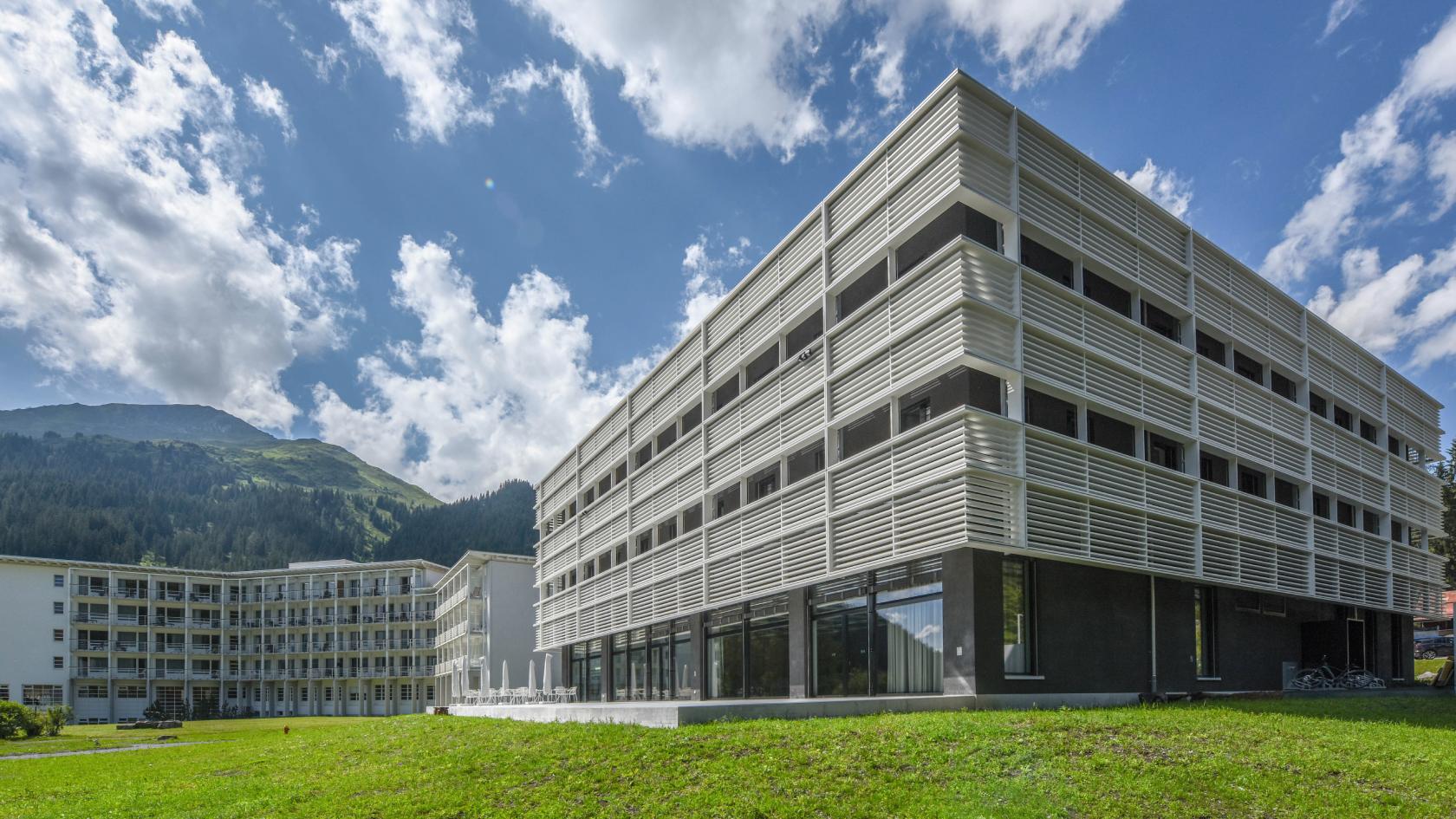Navigation auf uzh.ch
Navigation auf uzh.ch

The areas of research, education and innovation are of great importance for the competitiveness of the canton of Graubünden. They contribute to the diversification of Graubünden’s economic structure, create additional jobs and enable the canton to position itself as an attractive place to live and work.
This importance is underlined by one of the development focus areas in the cantonal government’s program (9.1 “Further develop university research institutes in Graubünden”) and systematically pursued as part of the government’s integrated research, education and innovation strategy.
President of the Cantonal Government Dr. Jon Domenic Parolini, Head of the Department of Education, Culture and Environmental Protection, who signed the agreement together with Cantonal Councillor Marcus Caduff, Head of the Department of Economic and Social Affairs, commented on the new chair in Davos as follows: “This agreement between the canton of Graubünden and the University of Zurich is a groundbreaking milestone in the cross-cantonal partnership to strengthen Graubünden as a center of research.”
The agreement means that the Chair of Allergology and Asthma is now part of the UZH Faculty of Medicine’s strategy, putting it on a permanent basis. “It is a very important chair in terms of its content and fits perfectly into UZH’s strategy,” says UZH President Prof. Michael Schaepman. “It will enable us to strengthen our leadership in the field of allergology and the SIAF in Davos in the long term.”
This creates a good starting position for further investments. The canton of Graubünden has already increased the cantonal contribution by CHF 250,000 to a total of CHF 780,000 in 2024. According to the cantonal law on universities and research, which was recently partially revised, the canton can provide a maximum of 80 percent of the federal contribution for the basic funding of research institutions of national importance in accordance with federal legislation. The 2024 federal contribution to the SIAF amounts to CHF 1.46 million. The possible further development through a continuation of the special professorship in precision proteomics is also being considered.
At the same time, the University of Zurich is planning to fund the chair accordingly. This will certain investments as well as the creation of positions for scientific and administrative/technical staff in the medium term.
The history of the SIAF goes back to 1905. Founded at that time as the Tuberculosis Research Institute Davos, the institution has been known under its current name since 1988. Under the current director Cezmi Akdis, the SIAF has developed into one of the world’s most important institutions in the field of allergology and asthma research.
The agreement will now secure the long-term continuation of the professorship and make it attractive for international and high-caliber applicants.
The agreement between the University of Zurich and the canton of Graubünden to create a chair is a significant contribution to the implementation of the cantonal innovation strategy. Stakeholders from science, research and business in the canton of Graubünden are to work more closely together in future in order to pool resources and drive forward innovative projects.
In a further step, the aim is to establish a unique research center for translational interfacial medicine of international importance in Davos. The center will help to reduce costs and improve quality in the healthcare system in the long term through personalized medicine with a focus on interfaces such as the skin, lungs or intestines. The focus of the center and its unique infrastructure will create incentives for cooperation and follow-up investments by external partners from science and industry.